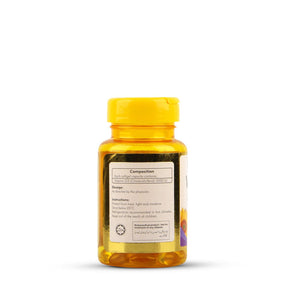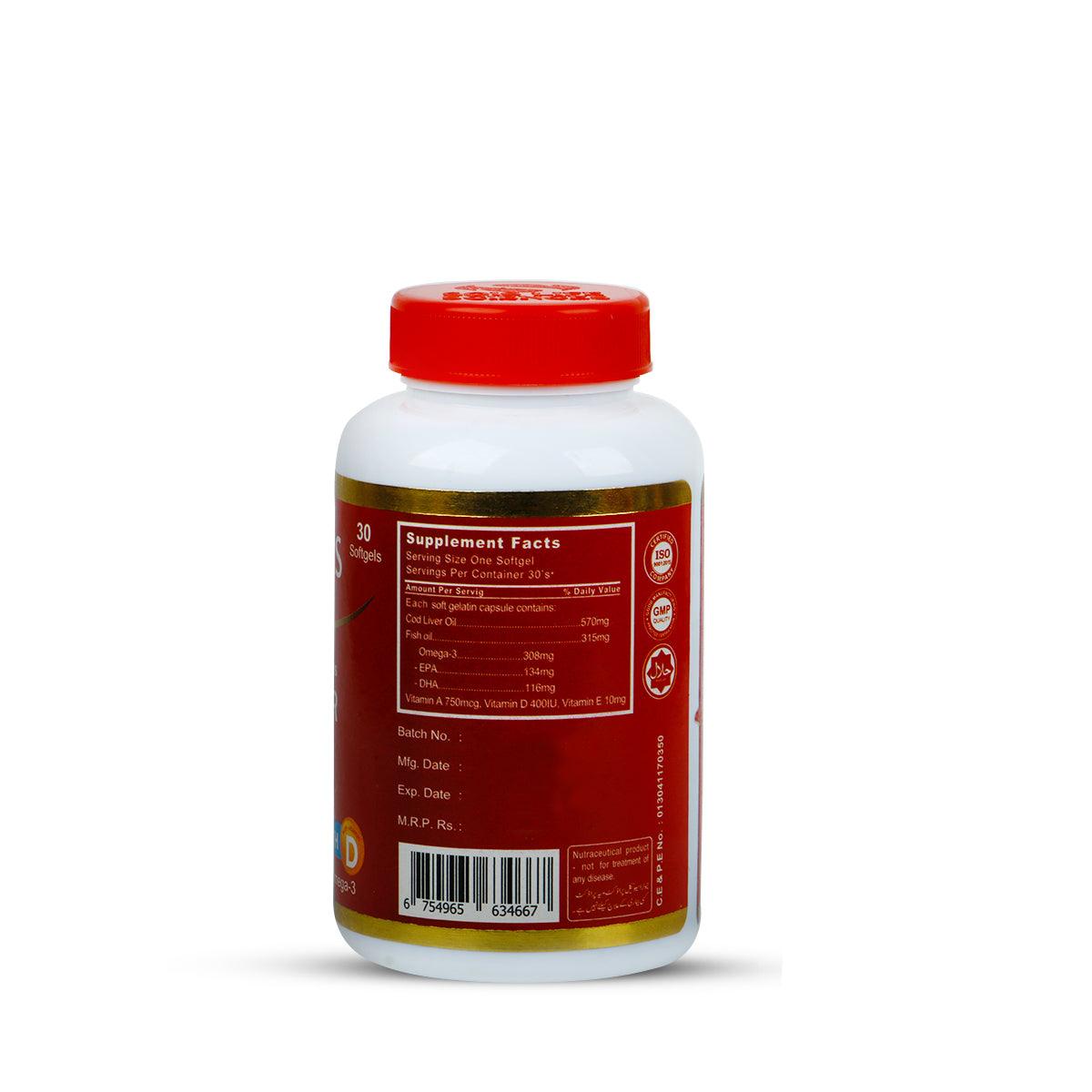- Home
- All Products Except Bundles
- Well-D Softgel
Benefits
- Promotes Strong Muscles And Bones
- It Promotes Absorption Of Calcium
- Promotes Strong Immunity

Promotes Healthy Bones
Well-D Softgels contains Vitamin D, essential for strong bones. By aiding calcium absorption, Well-D supports bone density, reducing fracture risk and osteoporosis, crucial for maintaining mobility and overall bone health.
Immune Armor
Well-D boosts the immune system, with regular intake, Well-D strengthens natural defenses, especially beneficial during seasons or situations requiring robust immune function.
Enhancing Emotional Wellness
Vitamin D aids neurotransmitter regulation, impacting mood and cognitive function positively. Maintaining optimal levels may reduce depression, anxiety, and seasonal affective disorder, promoting emotional stability and mental clarity.
Each Softgel Contains:
- Vitamin D3 5000 IU
As directed by physicians
How much vitamin D3 should I take daily?
The recommended daily intake of vitamin D3 can vary depending on factors such as age and health status. However, a common recommendation for adults is around 600-800 IU (International Units) per day. It's essential to consult with a healthcare
professional to determine the appropriate dosage for your specific needs.
How long we can take vitamin D3 supplements?
The duration for taking vitamin D supplements can vary based on individual circumstances such as existing deficiencies, health conditions, and lifestyle factors. Generally, it's safe to take vitamin D supplements for extended periods, especially if you have a deficiency or limited sun exposure. However, it's essential to consult with a healthcare professional for personalized advice on dosage and duration to ensure optimal health and prevent any potential risks associated with long-term supplementation.
Does Vitamin D3 increase menstrual bleeding?
There isn't substantial evidence to suggest that Vitamin D3 directly increases menstrual bleeding. However, Vitamin D does play a role in hormone regulation and can affect various bodily processes, including those related to menstruation. If you're experiencing changes in menstrual bleeding patterns, it's essential to consult with a healthcare professional to determine the underlying cause and
appropriate management.



Product Related


































